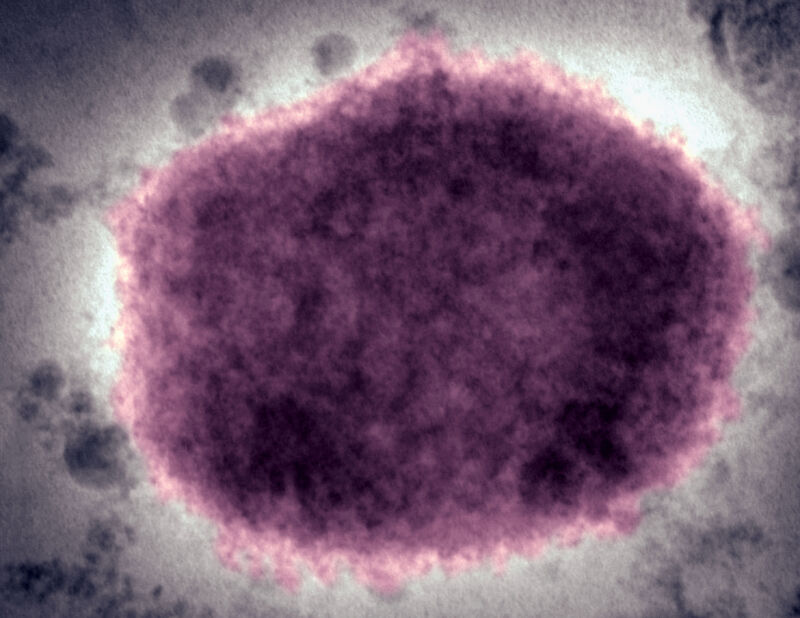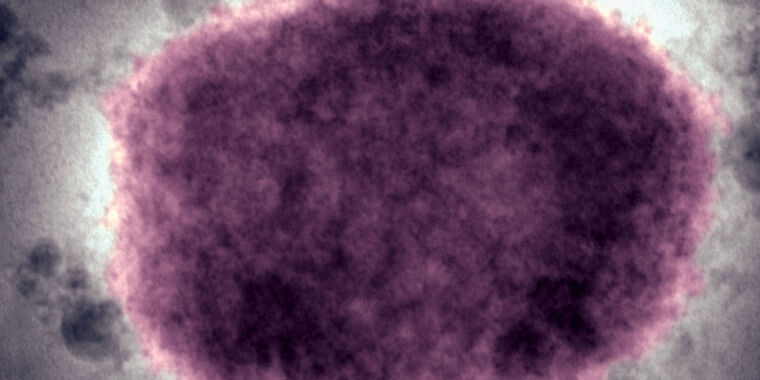
Update 7/23-2022 11:00 AM ET: The World Health Organization on Saturday declared the multinational monkeypox outbreak a Public Health Emergency of International Concern (PHEIC), the agency’s highest alert level.
On Thursday, the WHO convened an emergency committee of experts to assess the situation. The committee was unable to reach a consensus on whether or not to declare a PHEIC, WHO Director-General Tedros Adhanom Ghebreyesus said in a news conference on Saturday morning.
But Tedros, who described himself as a “tie-breaker,” noted that under the International Health Regulations, he had to consider several elements to decide whether to declare a PHEIC, in addition to the emergency committee’s assessment. Those elements include the scientific unknowns, risks to human health and risks of further international spread.
“Basically,” Tedros said, “we have an outbreak that has spread rapidly around the world, due to new modes of transmission, which we lack understanding and which meet the criteria of the International Health Regulations. For all these reasons , I have concluded that the global monkeypox outbreak is a public health emergency of international concern.”
With the PHEIC statement, Tedros has released a four-pronged set of recommendations for countries. The recommendations cover issues such as coordinating responses to stop transmission, engaging affected communities, stepping up surveillance, improving infection control in hospitals and clinics, accelerating research into vaccines and therapies, and managing of international travel.
“We believe that this [PHEIC] will mobilize the world to act together. It needs coordination and it needs… solidarity,” Tedros said. He ended the press conference by emphasizing that stigma and discrimination can be as dangerous as any virus.
In addition to this development, the U.S. Centers for Disease Control and Prevention announced on Friday afternoon that they had identified the first two cases of monkeypox in children. One case was in a toddler living in California. The other was with a baby who is not a US resident but was diagnosed in Washington, DC while the family was traveling. Both children are reportedly doing well. In contrast to the case of the child reported from the Netherlands and described below, the two cases of children in the US appear to be explained by transmission from infected household members associated with transmission in the community of men who have sex with men.
Original story 22-07-22 22 13:03 ET: The World Health Organization is currently reconsidering whether the booming multinational monkeypox outbreak should be declared a Public Health Emergency of International Concern (PHEIC), the agency’s highest alert level.
The deliberations come as the worldwide number of monkey pox cases surpasses 16,000 – and a new report of an unexplained case in a child in the Netherlands raises alarm about the possible spread of the virus.
The WHO emergency committee met for seven hours on Thursday to assess the state of the outbreak. It was the second time that WHO Director-General Tedros Adhanom Ghebreyesus convened the group of international experts. In its previous meeting, nearly a month ago, the committee expressed concern about the situation, but generally concluded that it had not yet risen to the level of a PHEIC.
That June decision drew criticism from some members of the public health community, who felt the commission had “kicked.” Critics further worried that the decision undermined a PHEIC statement’s ability to prevent a rapidly growing infectious disease outbreak.
Global Cases
The outcome of yesterday’s meeting is still unclear. The committee is now finalizing a report to the director general and the agency told Ars there is no set timeline for the outcome to be announced.
As it stands, WHO has received reports of more than 16,000 cases from 71 member states spanning all six WHO-designated world regions. The epicenter of the outbreak remains Europe. Five people have died in the multinational outbreak, three in Nigeria and two in the Central African Republic.
While some countries are starting to report declining trends in cases, Tedros noted, other countries are just now beginning to identify cases. Six countries reported their first cases last week, he said in a news conference on Wednesday.
The vast majority of cases are still identified in men who have sex with men (MSM).
“This transmission pattern presents both an opportunity to implement targeted public health interventions and a challenge as in some countries affected communities face life-threatening discrimination,” Tedros said at the start of Thursday’s emergency committee meeting.
The continued spread of the virus, especially in countries where people face significant barriers to healthcare, only increases the risk of the virus spreading further and among more vulnerable populations, such as pregnant people and children, health experts fear.

